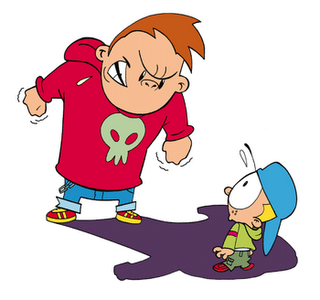
In the classroom we have different activities for doing with our students, but some time these activities are always the same … our task as a future teacher is to change and use new activities in our lessons.
Today Claudio presented about role plays and how to use it in lessons…. Sometimes is important that we learn using new thing such us role plays where students are able to assume a role and develop a character using obviously English… role plays is a good tool for improving speaking in our students.
Today Claudio presented about role plays and how to use it in lessons…. Sometimes is important that we learn using new thing such us role plays where students are able to assume a role and develop a character using obviously English… role plays is a good tool for improving speaking in our students.
What is Role-Playing?
In most role-playing exercises, each student takes the role of a person affected by an issue and studies the impacts of the issues on human life and/or the effects of human activities on the world around us from the perspective of that person. More rarely, students take on the roles of some phenomena, such as part of an ecosystem, to demonstrate the lesson in an interesting and immediate manner.
Why Use Role-Playing?
Role-playing is simultaneously interesting and useful to students because it emphasizes the "real-world" side of science. It challenges them to deal with complex problems with no single "right" answer and to use a variety of skills beyond those employed in a typical research project. In particular, role-playing presents the student a valuable opportunity to learn not just the course content, but other perspectives on it.
How to Teach Using Role-Playing?
The instructor needs to decide the context for the exercise and the role(s) that the students will play. If the students are taking human roles, the context is generally a specific problem such as global warming or dealing with an active volcano. Lessons need to be carefully explained and supervised in order to involve the students and to enable them to learn as much as possible from the experience. However, a well-done scenario never runs the same way twice, teaches people things they might not ordinarily have learned, and tends to be fun for all involved.











%5B1%5D.jpg)














